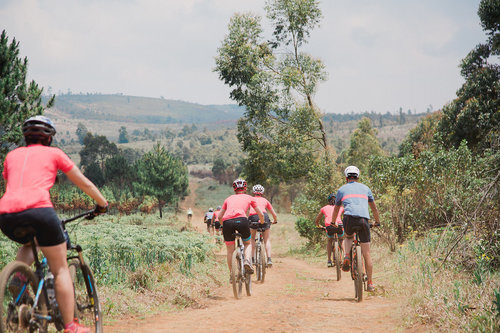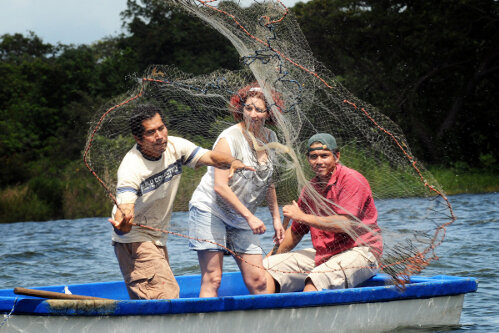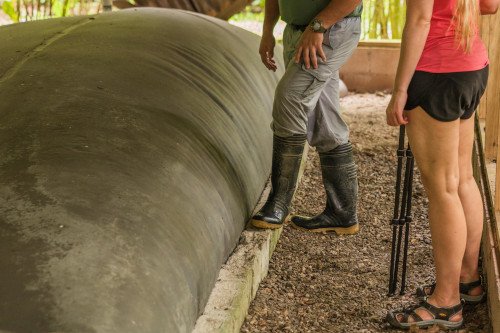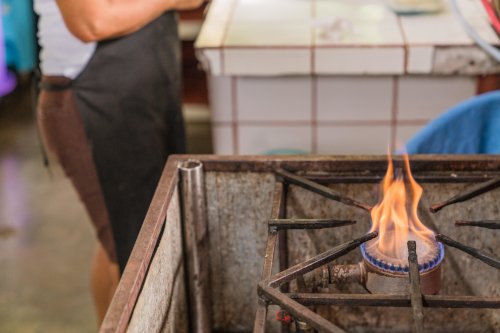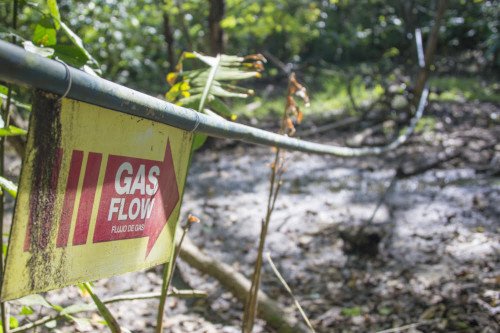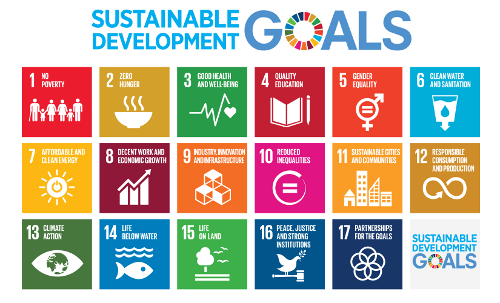Sustainable Travel Trends for 2022
/For last year’s Sustainable Travel Trends for 2021, we were mostly right! We might not have expected Covid19 entering its 4th year of existence, but where restrictions have presented past challenges to travel, we are now having to live with Coronavirus. And people can’t wait to travel! What do we foresee in 2022? (Looking for 2023?)
Jump to:
Sustainable Travel Trends 2022: Introduction
Humans are driven by a need to explore and have the freedom to expand literal and metaphorical horizons and connections - although as we know that can come at cost for the environment and society when not done in a sustainable manner.
61% travellers state that the pandemic has made them want to travel more sustainably in the future. (Booking.com, 2021)
Last year (#1, #11), we said Covid made many realise the importance of sustainability. Because to get through Covid, we need resilience (#5, 2021), and resilience is – and requires - sustainability.
49% of travellers admit the pandemic has shifted their attitude to make positive changes in their everyday lives. (Booking.com, 2021)
With more consumers feeling that they needed to take action, there has been an increase in the number of “Undaunted Strivers” and “Empowered Activists” (Euromonitor, Voice of the Consumer: Lifestyles Survey, 2021).
In 2021, people not only increasingly valued importance of connection to communities and nature (#13, 2021) as they did in 2020, but also how vital they are to economy. The question isn’t health vs economy, the understanding is without health, there is no economy, and our health is vitally dependent on our environment and community.
91% of the public wish to see brands ‘show by example’ and demonstrate the actions they are taking to support the planet.
59% of consumers are now prepared to force change by boycotting businesses seen as failing to prioritize the environment within 12 months. (The Rise of Sustainable Media, Dentsu and Microsoft Advertising, 2021 survey of 24,000 in 19 countries).
Travel, which occurs at the nexus of economy, environment and community, has been one of the sectors hit hardest by Covid lockdowns and their implications.
When we look back at our Sustainable Travel Trends for 2021, we see we’ve come a long way. We think Covid has given sustainable tourism a 5-, if not 10-, year acceleration to what would have otherwise happened without the pandemic and sustainability is ‘mainstreaming’ in a way which would have been a dream even 2 years ago.
A 2021 Google survey revealed
82% people said sustainability was more on their minds than before the pandemic
A 70% rise in the number of people searching for sustainable travel options in 2021
(But only a third know how to make such choices – you obviously do, because you’re here! Thank you!)
The Vacationer’s early 2022 Sustainable Travel survey of 1,096 American adults revealed:
81.43% either think there are not enough sustainable travel options or simply do not know if there are (thanks again - do let others know about us!)
87.32% say sustainable travel is either Somewhat Important or Very Important to them (+4.65 percentage points on 2021) and 71% would pay more.
81.57% plan to make more sustainable (eco-friendly) decisions when planning travel: Of which, only 29.84% say they will make the decisions regardless if it inconveniences them, while 51.73% will do it only if it does not inconvenience them.
But is this enough?
Still “We are moving in the right direction at the pace of a stroll in the park after a heavy lunch while climate change and the other crises we face are overtaking us at the speed of an Olympic sprinter who will soon disappear out of sight.” (Swarbrooke, WTM.com, 2021).
Will “Don’t Look Up” create enough conscious realisation of the urgency required to change our ways? We simply have to switch our demand to the most sustainable options asap.
Let’s have a look at some sustainable tourism trends we expect this year and actions you can take:
1. Away from the Masses
Government (UK, Omicron) data reveals where most people are opposed to strict lockdown measures, there is majority support for social distancing (included in #8, 2021 Trends)
People have really missed travel, are cautious with ongoing transmissions but feel safe with social distancing. The industry and World Travel and Tourism Council have done huge work to ensure and reassure with global protocols for “Safe Travels” common standards of health and safety, for transport, hubs, accommodations, tour operators, attractions, hospitality and insurance.
Concerns may centre on the confined space of airplanes, but the risk of on-board transmission in the cabin is very low, as the air quality is better than most indoor environments for a number of reasons: passengers face the same direction, seatbacks act as barriers, and the air is very clean. Cabin air is refreshed 20-30 times an hour (about 10 times more than most office buildings), ie. every 2-3 minutes, from top to bottom (not along the length of the aircraft) and made up half fresh air and half HEPA (High-Efficiency Particulate Air)-filtered, which is 99.993% effective at removing bacteria/virus, including SARS (similar to COVID-19) and akin to hospital operating theatres filters (IATA, 2021). Plus of course, passengers should take their own anti-infection measures: wear masks, clean hands frequently, and sneeze/cough into a bent elbow or tissue.
With coronavirus throughout the world, countries are increasingly removing travel restrictions for the fully vaccinated, keen for vital tourism to resume to support Covid-shutdown economies and communities.
Remember to check the travel requirements of your originating country and destination and have the necessary proofs and documentation.
Allow extra time at transport hubs for health and safety checks.
Ensure travel insurance covers your Covid requirements.
People want to travel, it’s safe to do so, and countries are keen for tourism to resume! So let’s go!
For spatial distance, go rural, remote and outdoors.
> Earth Changers suggests: Ranch & Retreat in Croatia.
Enjoy the freedom of the frontier off the beaten track in Croatian mountains at Europe’s only working guest ranch. A specialist horse-riding centre, canoeing and caving, animal tracking and archery, wagon rides and more. At night, storytelling around the campfire, music, dancing, and sleeping in tipis amongst the many accommodation options. more >
2. Health & Wellness… continues
We included this last year (#10). But additionally this year, if you’re not aware of the need for vaccination at home, you certainly will be if you travel. Yet huge vaccine inequality exists between places. We’ve come to understand that none of us can recover if the whole world isn’t recovered. We are one world and health is high on the agenda. Plus, it’s already in the Global Goals’ aims for 2030: Like the other Sustainable Development Goals, we have just 8 years to meet SDG 4 for Health and Well-Being.
We expect to see more tourism organisations offering support for health, like vaccination programmes in destinations, and trips of physical activity and mindful retreat.
> Earth Changers suggests: Immersive challenges
In places like rural communities in Malawi, you’ll experience extraordinary insights into yourself as well as global issues, whether health, inclusion or climate. How about:
The Orbis Cycle Challenge - with Mark Beaumont BEM, British cycling inspiration
Join Mark for an inaugural 7 day Cycling Challenge adventure taking in some of the country’s most stunning and diverse landscapes, including the tea estates, trails of Mulanje Mountain, Zomba Plateau, you’ll finish on the shores of Lake Malawi. more >
The Orbis Trail Challenge – with Lauren Steadman, Tokyo Olympic Gold Medallist, Paralympian, World Champion.
Join a team of 20-30 athletes passionate about sport and pushing the boundaries of inclusive adventure travel. This 7 day expedition to Malawi includes 3 half marathons: a Mulanje Mountain trail run, a Zomba Forest trail run, and a Lake Malawi trail run, plus a village 5km, combined with visiting communities and primary school sports coaching. more >
Or would you prefer more sedate mindfulness?
Malawi, the Warm Heart of Africa, offers great value for adventures of the mind, body and soul set against a magical backdrop. If you’re after a corporate, education, or friends or family group trip or family holiday, let us help you arrange a bespoke trip. more >
3. Climate-Friendly Travel
While most have prioritised Covid in short term, the real priority threat to our existence is the climate crisis. We were right last year (#2) that awareness increased through the year to Cop26 in November
87% of those quizzed say climate change is their number one concern – ahead of Covid-19 (85%), the health of friends and family (79%) and the cost of living (76%). (The Rise of Sustainable Media, Dentsu and Microsoft Advertising, 2021).
What we didn’t foresee last year was the popularity of a film bringing the Climate Crisis to mass attention in funny yet disturbing way.
> Earth Changers Suggests: Watch the movie “Don’t Look Up”
Its superficial story of two low-level astronomers on a giant media tour to warn mankind of an approaching comet that will destroy planet Earth may be a thinly veiled allegory for climate change and more recently Covid. But it shows how the science and those with the knowledge are denied, devalued and frustrated, those with the power to do something wilfully avoid taking action, and those with vested interests can mislead the public.
Those of us working in sustainable tourism to catalyse industry change find sad hilarity in its familiarity of disturbing denial and avoidance. But we’re not alone – as we predicted, this grew hugely in 2021, and saw the evolution of Tourism Declares, of which we were a launch day signatory, into the UN-supported Glasgow Declaration, launched at COP26, for the travel industry to get on board to measure, monitor and create plans (we’re underway!).
What do we expect to see more of in 2022? As people grow in awareness and understanding of the climate crisis, a more nuanced approach. Climate action is more than just carbon and global warming, but how that interacts with other global issues and sustainable development goals, such as the impact on oceans (SDG14), clean water and sanitation (SDG6), access to food (SDG3), health (SDG4) and so inequalities (SDG9), migration and injustice (SDG16).
> Earth Changers suggests: Book with our Glasgow Declaration climate partners
Such as our partner in Nepal: A heavenly transformative haven of tranquillity at the trekking centre of Nepal. Relax pre- or post-trek, and enjoy the staggering scenery with this pioneer for responsible travel. more >
4. Get Back to Nature
One area that COP26 largely omitted was the link with biodiversity/nature conservation. And nature-based solutions are key to mitigation, as well as biodiversity breakdown, in and of itself. Are we now facing the 6th mass extinction?
Covid has also had a huge impact on the conservation of nature, because tourism has been locked down, “From an economic point of view (financial contribution to conservation, as well as to the local economy), from a community point of view (diversifying income, providing alternative valuable land use), and from a philanthropic point of view (driving direct support to conservation initiatives).” (The Long Run).
> Earth Changers suggests: Stay in a protected area or help conservation
You won’t only be helping conservation, but you’ll be helping a community get back on its feet from Covid’s tourism lockdown, protecting species, tourism and linked livelihoods.
Visit our partner ecolodge in Tanzania, the world’s first private (land and) Marine Protected Area and the only one fully-funded through ecotourism. Every trip helps education and conservation for the protected area whose snorkelling is out of this world! more >
Or would you like to learn to sail at the same time as about ocean conservation? You’ll certainly get away from the masses with climate-friendly travel and top notch Covid protocols in our partner’s yacht! With limited berths and trips, places fill fast!” Cross the North Pacific Gyre to help resolve plastic pollution, visit rarely reached Palmyra National Wildlife Refuge within the Pacific Remote Islands Marine National Monument, or explore the marine wildlife between Alaska and Canada! more >
5. Community Centre
Covid’s reminded everyone of the importance of community: for the support we need, and that we want to give back to support others. We all need each other.
For a long time, “authenticity” has been a long-desired quality for travellers, and you can’t get more authentic than with real community.
But in mainstream travel far too often is community used and exploited by tourism rather than a community using tourism as a vehicle for achieving their own determined goals.
In sustainable, regenerative tourism, we put the power of tourism in the hands of the community first: they are the hosts and guardians of their places, they know what’s happening, the priorities they have, and the voices that need to be included and heard.
They facilitate cultural exchange, help expand minds, understanding and tolerance, sharing ideas and demonstrating sustainability is without borders.
The greater the local community integration, the more authentic, the more sustainable.
And with Covid lockdown, we’ve seen out of necessity more handover of operations to local communities as international staff repatriated. Tourism may have been closed entirely or kept open for domestic travel, but it’s the local staff who have not only kept properties and operations maintained and upgraded to latest Covid protocols.
> Earth Changers suggests: Authentic community integration in Madagascar!
Our NGO partner’s Malagasy staff stepped up enormously on the ground to cover the 20% international staff not in-country due to Covid; they’ve supported government health programmes and food distribution. But, volunteering had to be put on hold.
Now with the return of international travel, it’s once again restarting and you can get hands on with conservation! How does that put community in the centre? They share the rainforest environment and ecosystem they all live off. Bats, lemurs, amphibians, rainforest and reforestation – you’ll do important, rare experience field work and help with community initiatives and environmental education. more >
6. Decarbonising Mobility
There’s a lot of research and development going on for low carbon mobility and alternative fuels. In tourism you can expect to see more biking, electric car charging points at hotels and electric vehicles.
Earth Changers suggests: Safari with electric game drive vehicles
Not only better for the environment, electric game drive vehicles’ quieter nature means a better wildlife-watching experience: less disturbing to animals and safari guests alike.
Check them out at out partner’s ecolodge in Kenya where only renewable energies are used – electric Land Rover for game drives; photovoltaic panels for electricity; solar boilers for hot water; and all food cooked in stoves using a charcoal made from coffee husks, approved by the United Nations Environment Programme. Carbon-neutral, the limited emissions that occur in the whole operation are offset in their own MWCT REDD+ Chyulu Carbon Project, a UN climate change mitigation strategy through biodiversity and active forest, deforestation and degradation protection and alternative livelihoods for local communities, the first for the Maasai. more >
But is travel “an elitist proposition which is not socio-economically inclusive in its ambit”? ORFonline.org thinks the transport sector needs a sustainability transformation going beyond just an e-mobility transition: We need a systemic transformation of the entire mobility ecosystem (see #10 below) – because traffic congestion, travel time, quality of infrastructure, affordability of commutation, accessibility, inclusivity of transport solutions, all still remain if 100% electrified. Key for cities and communities is accessible sustainable public transport options.
And what about aviation? As much as it isn’t responsible for the climate crisis (accounting for 2.5-3.5% emissions), neither is its alternative going to save us from it – but it will contribute, and help create a better world. Electric and green hydrogen options are all being worked on but are still years away from the urgent commercial implementation required; Sustainable Aviation Fuel (SAF) may offer the interim transition.
In 2022, countries will be announcing revised UN Climate Paris Agreement Nationally Determined Contributions (Greener Government Policy, #4, 2021) which they were told to strengthen at COP26 in Glasgow in 2021 to slash emissions to align with net-zero and 2030 targets. So we’ll see more countries like Denmark and Sweden committing to fossil free flights by 2030, as pressure comes to align economies and sectors’ decarbonisation with Paris Agreement emissions targets, precipitating R&D and investment in alternatives eg. rail.
7. Food for Thought
We expect the year’s big themes to carry over to food trends (#1, 2021) in tourism as consumer values change-by-Covid, consciously supporting sustainability, climate and communities.
We’ll see further growth in travellers wanting local, cultural food experiences – different to what they’ve had locked down at home for so long – so think more food tours, market shopping for and cooking lessons, and agri-tourism.
For climate, we’ll see desire for less food miles, increasing menu options for vegans and of course growing climate-friendly organic and even edible packaging options for take-outs.
And with travellers much more mindful of food choices and travel operators wanting to see customers back and happy, both will be keen to support local community sustainable chains, not just for better organic quality and value, linking in with increased wellness trips, but also knowingly to support their economies and livelihoods.
> Earth Changers suggests: Book with who supported Covid-hit communities
Coronavirus hit unemployment and families hard, many requiring help with food. Despite being closed and having no tourism income, our partner lodge in South Africa pulled off the massive feat of feeding between 1,700 to 2,300 of their community every day, 7 days a week: often children no longer able to attend school and receive school meals. From April 2020 to May 2021, 13,720 beneficiaries were fed over 300,000 meals. These are the type of tourism organisations we should support with our wallets!
8. Circular Tourism?
No, we’re not talking about tours that start and end at the same point, or even circular walks – though of course they are endlessly popular and sustainable! We’re talking circular economy, and we expect it to see it applied more and more in tourism (#4, 2021).
For the uninitiated, compared to an historic ‘linear’ model of resource consumption where we ‘take > make > waste”, circular economy works on 3 principles to ‘close the circle loop’:
design out waste and pollution
keep products and materials in use
regenerate natural systems
A lot of tourism is actually a service eg. a stay, a guide, finances - not products that can necessarily be recycled. But behind those services are often physical raw materials which could be circular eg. buildings, fuels, clothing, food, interiors, linen…
Where circular economy has historically been behind the scenes, as suppliers look to connect with guests more over sustainability, we think we’ll see a shift to focus on the consumer, empowering them with information to stand out and help sell (such as carbon labelling), and to obtain and retain positive sentiment and loyalty. Seeing is believing and to engage is to experience sustainable development in action. Such education opportunities will enhance customers’ behaviour change and become advocates, for businesses and sustainable tourism overall.
> Earth Changers suggests: Learn about back-of-house sustainability!
One of our favourite ‘out of the box’ implementations comes from our partner Costa Rica ecolodge’s ‘Twigs, Pigs & Garbage’ sustainability tour. There you get to not only see behind the scenes, but also circular economy in action!
The pigs eat the waste food from the ecolodge restaurant & kitchen, producing...
...manure, stored in a biodigestor, capturing emitted methane, which is...
...transported by gas pipe to the staff kitchen, to...
...cook meals for staff! With any food waste fed to the pigs… and so it goes on!
Here's to the pigs who reuse & recycle food waste, save fossil fuels and power staff energy! Talk about designing out waste and circular regeneration! more
9. Greenwash in Tourism
We knew last year that demand for sustainable tourism would grow and we’d see a rise in companies following sustainability certification programmes (#7,2021), but admittedly got a bit ahead of ourselves expecting consumer recognition and industry consolidation yet - there’s even more certifications and standards now! It will come in time.
But we were also right in forecasting growth of greenwashing in parallel (#6, 2021): Consumer demand for sustainability sadly almost inevitably means there will be those who claim they are doing more than they demonstrate.
What’s new this year is there will be greater clamp-down on it (#4, 2021).
There is a new (UK) Government Competition & Markets Authority (CMA) Green Claims Code on greenwashing: good for everyone to know, whether traveller or travel company, regardless of location.
It’s not a new regulation, as when making green claims businesses must comply with existing consumer protection law, but there is a new Green Claims checklist and the CMA have flagged priority industries as textiles and fashion, travel and transport, and fast-moving consumer goods, so there will be more interest and activity from the Advertising Standards Authority.
> Earth Changers suggests: Travel with us, we curate the real green deal.
Green claims are genuine when they properly describe the impact of a product, brand, business or service, with evidence to back it up, like we have for all our partner ‘Places’. We do this hard work to research and curate the best ‘green’ options so you don’t have to: check it out and enquire with us: wherever you want to go, we help connect you to the real green deal.
10. All Change Please! Regeneration Required
At root, Earth Changers is about regenerative tourism, which we are definitely seeing more in destinations (#12, 2021). The tourism we feature is maximally responsible and sustainable, but regeneration is about more than being top notch sustainability. It’s about a different approach to tourism, one which sees it holistically as part of an envionment – physically, politically, economically, socially, technically – and as part of a dynamic interactive ecosystem, that it impacts and is impacted by, creates the conditions for life to flourish resiliently.
For such a huge global ecosystem such as tourism to be sustainable and regenerative, we need systems change. Globally we need to move away from what it can ‘take’ from places to what tourism can contribute to places and their people: Purpose beyond profit.
We’ve already seen countries - like Bhutan with its Gross National Happiness and cities like Amsterdam aiming to work within the planetary limits of Doughnut Economics (#9, 2021) - pursuing these purpose-driven system-changing models, and this will grow.
> Earth Changers suggests: How to Measure Tourism’s Impact: Shed Old Ways
When Destination Management Organisations and Tourist Boards look to Key Performance Indicators beyond sheer arrival numbers or profit, to measures of impact, we’ll see more systematic change, required to turn more tourism to a sustainable approach, considering community health, welfare and living standards for a well-being economy.
Last year we called for more backing for sustainable tourism (#14, 2021), and we have seen the non-sustainable wanting to partner or invest in its rising demand. But we were wrong in just wanting support, it needs to be the right mindset and share values of regeneration.
Regenerative, sustainable tourism isn’t an ‘on-trend’ product development addition from which to make profit: that would be high level greenwashing. It’s a different way of doing business, which requires the business to make decisions for a different purpose: not about volume or output for consumption, but about creating impactful outcomes.
By experiencing positive impact regenerative tourism, travellers aren’t just passively consuming a destination; rather, alongside local host communities, they are taking part in and contributing to create and precipitate change and sustainable development in action.
So what we expect to see this year is not just increasing interest in sustainable tourism, but growing understanding and support for the mindset and systems change needed to deliver it. This is necessary for striving for the UN Sustainable Development Goals of Agenda 2030. Unfortunately this didn’t happen in 2021 (#3) because the pandemic extension due to new variants meant the previous steps forward in the SDGs faced two steps back with all the impacts of Covid. Much work is required to get the SDGs back on track let alone reach the Goals.
> Earth Changers suggests: Tourism businesses - Register for an SDGs course
If you’re a tourism business organisation keen to align with the Sustainable Development Goals and the systematic mindset to achieve them for a regenerative tourism future, we’re creating a course for you! Register your interest for more information.
We hope you’ve enjoyed reading our Sustainable Travel Trends for 2022! What would add? Let us know!
Earth Changers suggests: Keep updated - sign up for news and exclusive content.
You’ll find a sign up form at the bottom on our contact us page or on the right here >



